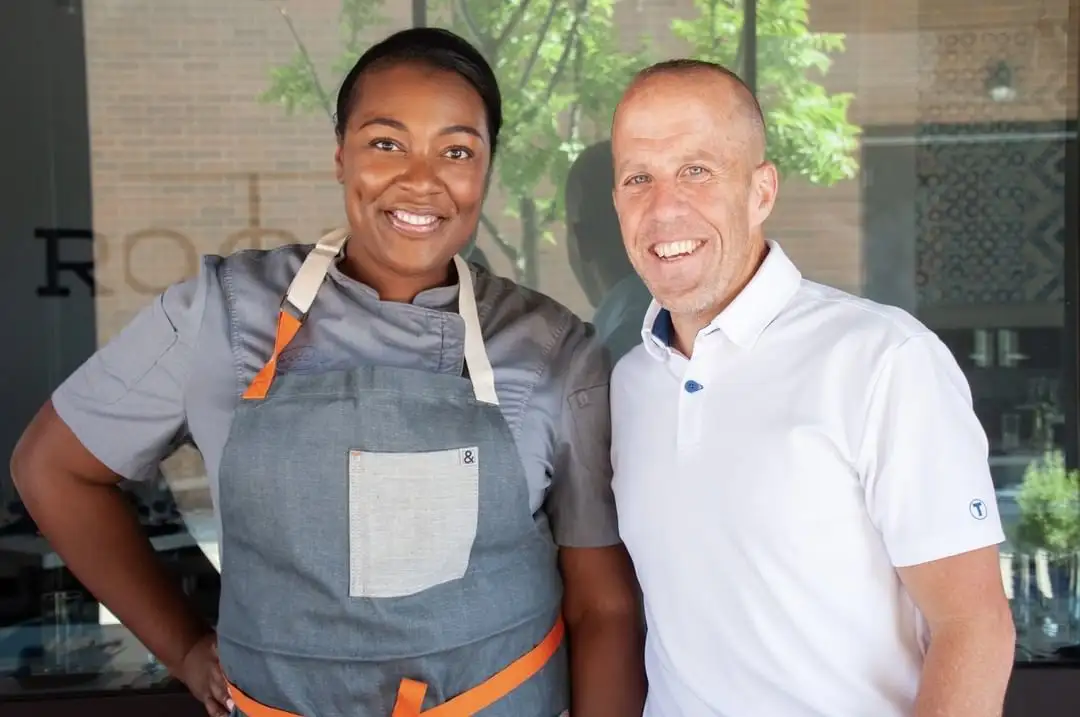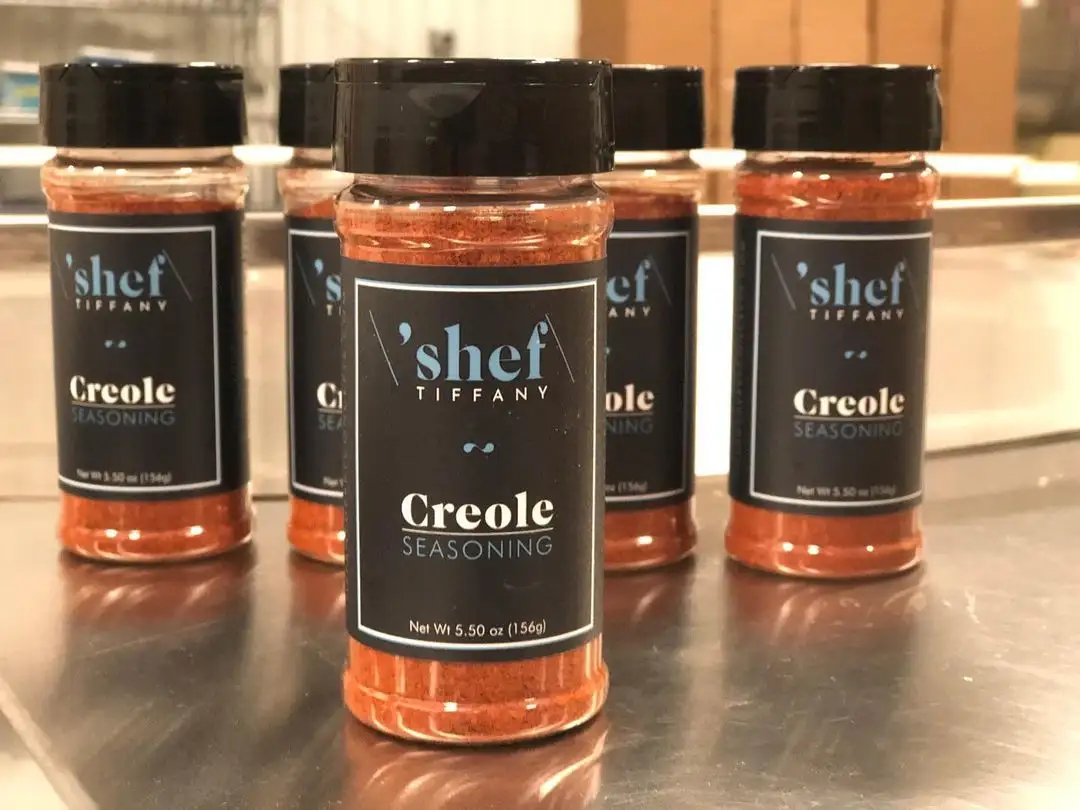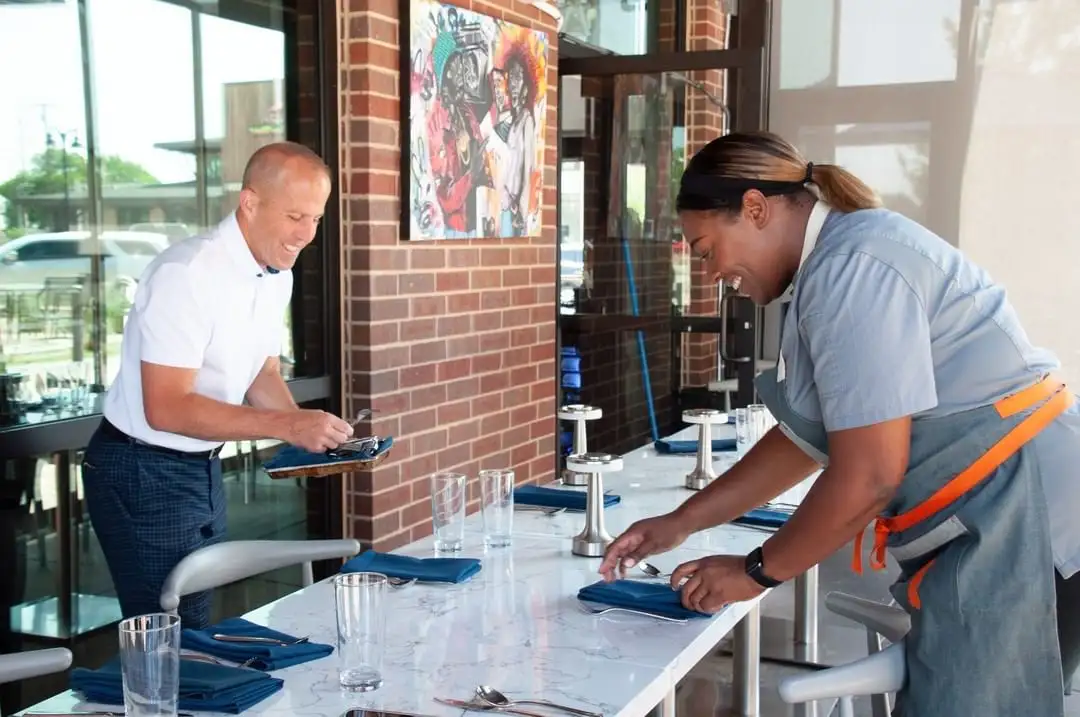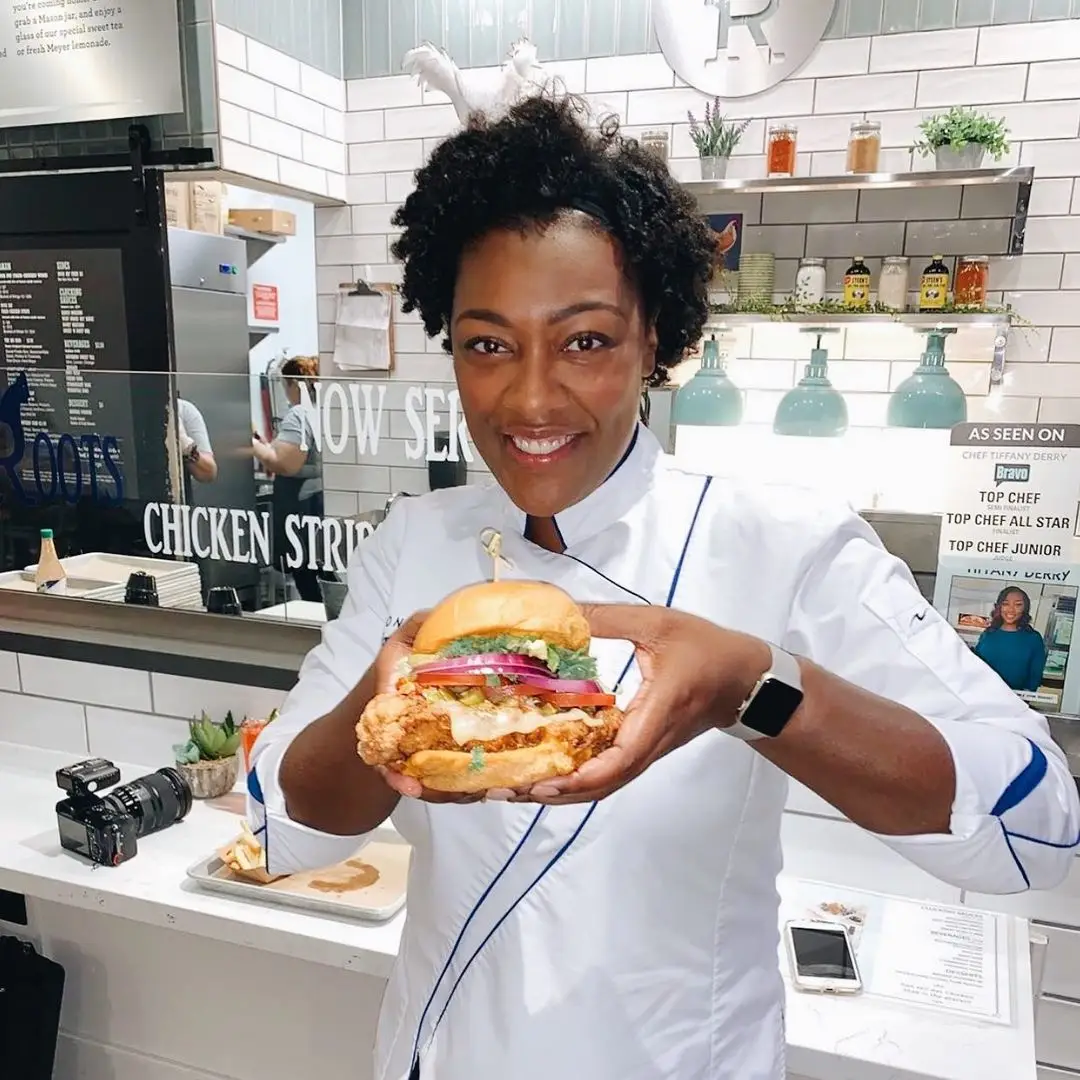Restaurant Forward
Closing the Racial and Gender Wealth Gap with Roots Chicken Shak
September 7, 2022
How a Texas fast-casual brand is reimagining the franchise model as a revolutionary (and profitable) form of social entrepreneurship.
People in the restaurant world talk a lot about “gatekeepers”: the individuals and institutions that sit atop the machinery of the industry, deciding what’s in and what’s out. But one type of gatekeeper sits above all others, deciding not questions of taste, but who gets to exist: the investors.
Speak with anyone long enough about what it would take to change restaurant culture, and they’ll inevitably point out that nothing will really change until investors decide to do things differently. Restaurants are hard businesses to run, and investors are typically wary of anything that could endanger returns that already scrape by in the low-single digits across the industry.
Chef Tiffany Derry and Tom Foley, founders of the restaurant company T2D Concepts, are trying to change that. Nationally known as the owners of Roots Southern Table, a nominee for the 2022 James Beard Award for Best New Restaurant, Derry and Foley’s Roots Chicken Shak is a fast-casual brand designed with the explicit goal of giving historically marginalized people a chance at restaurant ownership.
Though potentially revolutionary, the business model is simple: To invest in people who are restaurant experts but invisible to the traditional restaurant investment industry. With this strategy, T2D Concepts hopes to make the Roots Chicken Shak brand into a source of opportunity — instead of a gatekeeper.
We sat down with Tom Foley to learn about the enterprise he and Derry are launching and why he thinks Roots Chicken Shak can translate their mission-first idea into an overperforming investment.

BentoBox: First off, congratulations on the Best New Restaurant nomination.
Foley: Thank you. It’s been a remarkable journey, going from swinging hammers all through COVID to getting some attention from the New York Times and a few other places. The James Beard nomination was such an honor. It’s given us a bump for sure.
How does that restaurant, Roots Southern Table, fit into the larger business that you and your partner Tiffany Derry are running?
Roots Southern Table is our full-service restaurant. We opened it up in June 2021 and have a second full-service concept in development now. Roots Chicken Shak is our fast-casual restaurant where we serve duck fat-fried chicken tenders, wings, sandwiches and french fries. There are two, soon-to-be three locations of that brand. We also just launched ’Shef Tiffany spices, our Creole spice mix, which is debuting in 50+ stores around Austin, Houston and Dallas soon.
All three of those brands operate under T2D Concepts, the LLC that Tiffany and I started.

How did T2D Concepts start?
Tiffany and I met about seven years ago. She had come to me — I’m an attorney by background — and we started talking about some of the challenges the hospitality industry faces and what we could do to help reshape the space.
The two of us started developing the idea of what we now call “unparallelled hospitality,” which is both guest-facing and a commitment to better work experiences for staff.
We also have a significant focus on driving social justice; specifically, closing the racial and gender wealth gap. A lot of what Tiffany and I do focuses on creating learning opportunities for staff members and creating economic opportunities for historically marginalized community members.
What is the social justice component of what Roots Chicken is doing?
Tiffany and I first came together on a mission to work to ensure everyone has a seat at the table. We’re doing that by creating a franchise model that creates ownership for people who have historically been shut out of ownership. We believe the model is scalable; that it can generate reasonable profit and a strong annual level of compensation as it grows.

How does the franchise model work?
First, we’re going to open in or near communities that have been historically redlined — typically minority communities where banks didn't lend money. Second, we’re going to ensure that somebody from that community gains ownership in the franchise.
To find that person — a prospective franchisee — we’ll ask four questions. One, do you live in a historically redlined or marginalized area? Two, do you have restaurant operations experience? Three, do you have $25,000 or less in the bank? And finally, do you have a credit score of 650 or lower?
If you answered “yes” to the last two of these questions, there’s almost no chance you’ll get to own your own restaurant the way the system is currently structured. What we’re saying is, if you’re able to run a restaurant, we are interested in you being our owner-operator.
We believe if we create opportunities for others, our team will work harder and this culture will be contagious. We hope we’re creating a shift in our system together.
Let’s say the buildout costs are $250,000. You don’t have that. No problem: those funds will come from or through us. We’ll structure the investment more like a loan that is forgiven based on time commitment. We’ll come up with a vesting formula; let’s say that for every day this business is open and operational, you’re forgiven $500. So if your Roots Chicken Shak is open for 500 days, your loan is repaid. You’ll own the franchise.
So essentially you’re lending money and the Roots brand to borrowers who banks will overlook, but who have the expertise and desire to run a profitable restaurant.
Right. We’ll cover the launch costs and you’ll pay us back with your commitment to operating the business. Once you complete the term, that loan is erased and you have a traditional franchise business.

Do you see this as a risky bet to place?
Actually, I think we’re making a conservative bet.
As franchisor, it’s vital that we identify a committed, talented franchisee as our partner to own and operate a successful Shak. Imagine we had a choice between [billionaire investor and Dallas Mavericks owner] Mark Cuban, or the assistant manager at a local restaurant who is supporting her family on a modest salary. If we select Mr. Cuban, he may have the business acumen to operate the restaurant, but he’ll be removed from the day-to-day operations. The assistant manager will dedicate her full time and efforts to the operations of the restaurant. It’ll be her “baby.” What we’re saying is, we want to bet on her.
We’re putting a lot of work into understanding people’s circumstances, too. If you had a life event that negatively impacted your credit, we will look past that. Maybe you’re choosing between paying your credit card and paying a hospital bill. Or if you're working, you have two children, and you've got to pay rent and cell phone bills — I know why you don't have savings. So I'm not worried about your credit or the size of your bank account as a measure of whether you can operate Roots.
Has this franchise model been tried before?
Not that we know of. I have studied social entrepreneurial models, from Muhammed Yunus and Grameen Bank in microfinance to TOMS Shoes in apparel, but this might be unique in the hospitality industry.

How did you and Tiffany decide to commit to a social justice mission?
Tiffany often shares a story about how when she was fifteen, she wanted to get a job at IHOP as a cook. They told her, “Women don't work in our kitchen.” At the time, she just, you know, grinned and bared it and started serving, waiting for an opportunity to get into the kitchen. She has also shared with me that growing up in the industry as a Black woman, she didn't see a lot of people that looked like her. So working to close gender and racial gaps in the industry has always been a cause close to her own life.
For me, inequity angers me. I’ve spent a good deal of time trying to create greater equity in my own career. This has manifested in serving as an adjunct professor at two Historically Black Colleges and serving on the Business Advisory Board of a third HBCU as well as standing up a business resource center fostering growth for women- and minority-owned businesses. I also facilitate workshops in the corporate environment around allyship in the workplace, ensuring we advance everyone.
When Tiffany and I were brainstorming, we knew that we could create an energy in our restaurants embracing the idea of social justice. We believe if we create real opportunities for others, our team will work harder and this culture will be contagious. It takes a community to drive change. We hope we are creating a shift in our system together.
If you’re able to run a restaurant, we are interested in you being our owner-operator.
So the mission came first, before the franchise model?
Oh, yes. Our goal to close the racial and gender wealth gap is at the core of why we are who we are.
We didn’t start with the franchise model. The model came last. If we had this same conversation four years ago, I would have told you that we were trying to figure out how we can do this. We didn't know how you scale it. Even that example I gave you of which operator you’d bet on: that came from a conversation about a year ago, when somebody was really pressuring us on why an investor would do this. Our belief is, look, we’re entrepreneurs, and we think it's going to work. We just press forward, and we'll make it work.
To learn more about T2D Concepts, visit t2dconcepts.com and follow Tiffany Derry, Tom Foley, Roots Chicken Shak, and Roots Southern Table on Instagram.
Recommended

Restaurant Forward
Building Healthy Habits in the Kitchen with Michael Chernow
November 10, 2022
The restaurateur behind NYC’s Meatball Shop and Seamore’s on why more chefs are taking their health seriously, and how you can do the same.

Restaurant Forward
Intentional Hospitality in a Gentrifying World with Studio ATAO
November 21, 2022
How restaurants opening in disinvested neighborhoods can engage with their communities and be part of the solution.

Restaurant Forward
The Next Phase of Food Tech with Kristen Hawley
October 5, 2022
Restaurant technology’s favorite beat writer discusses the relaunch of Expedite, what’s coming for restaurants, and the biggest story of her career.

